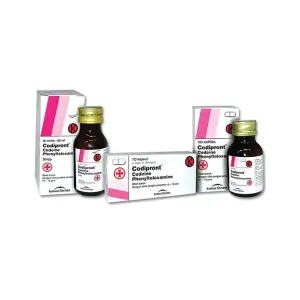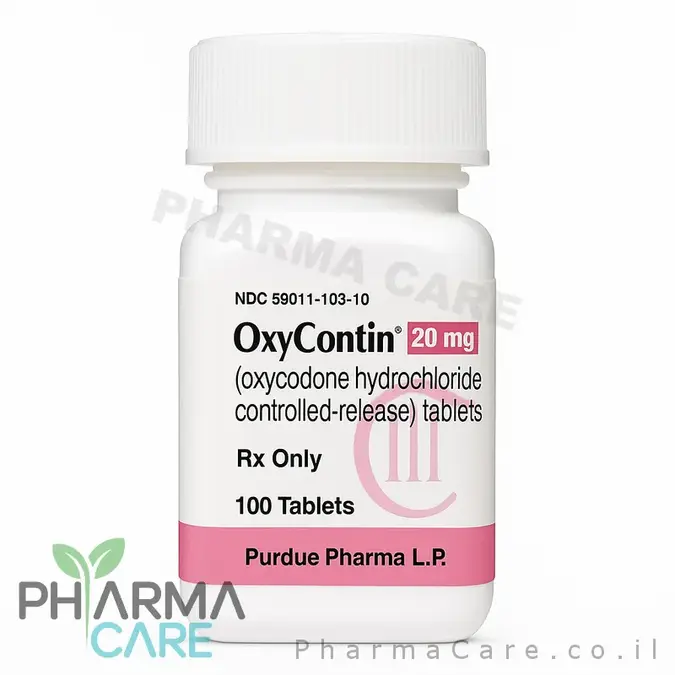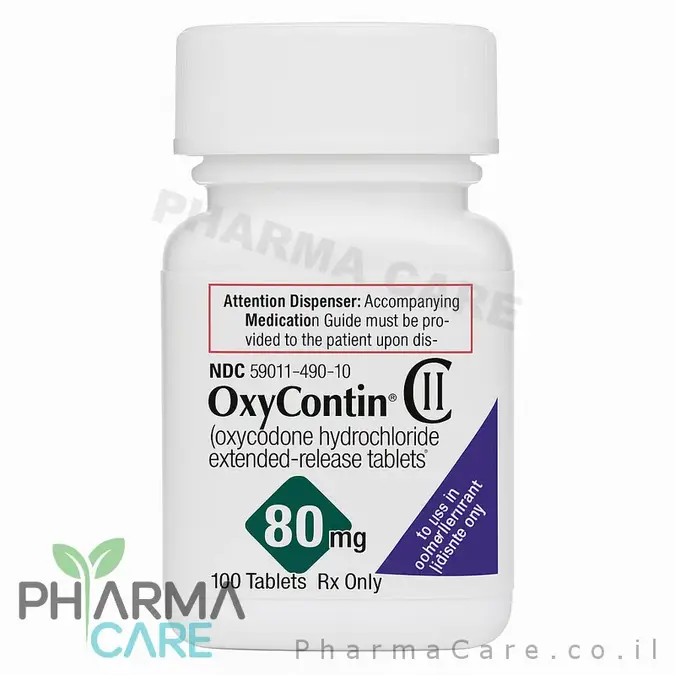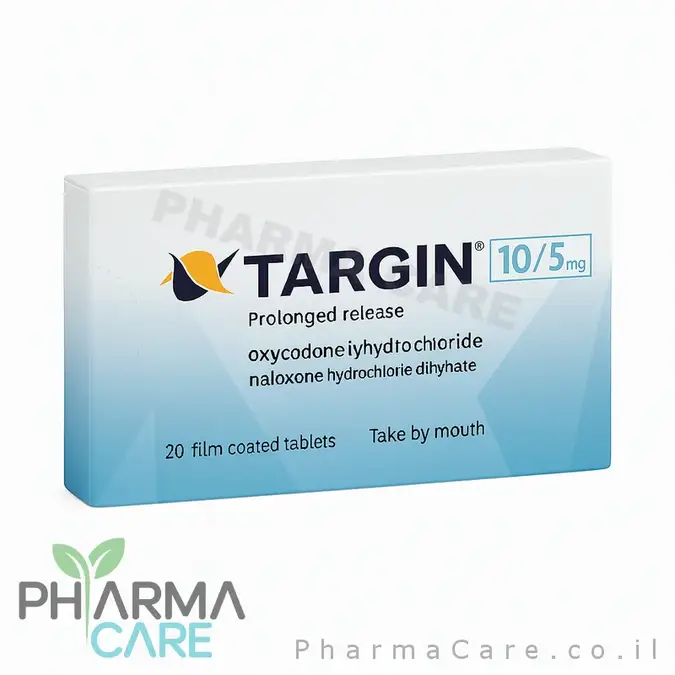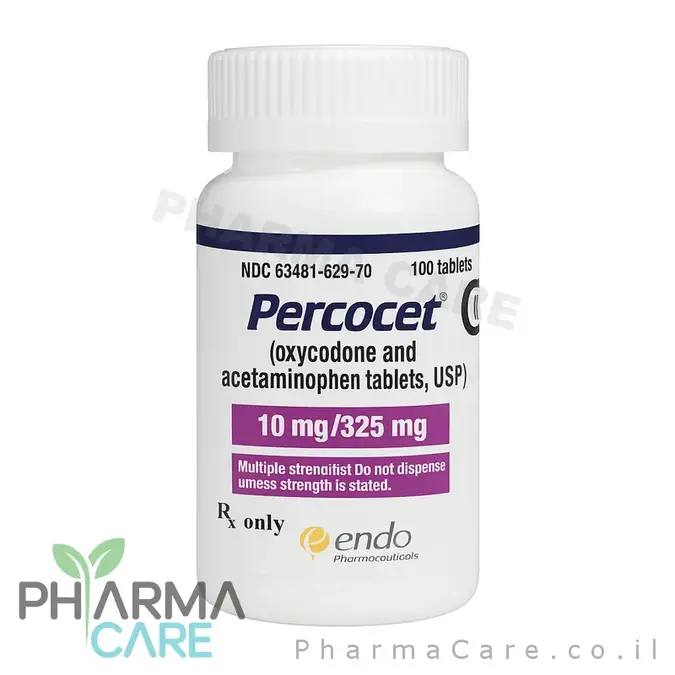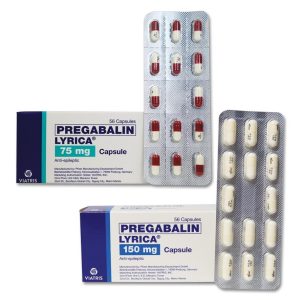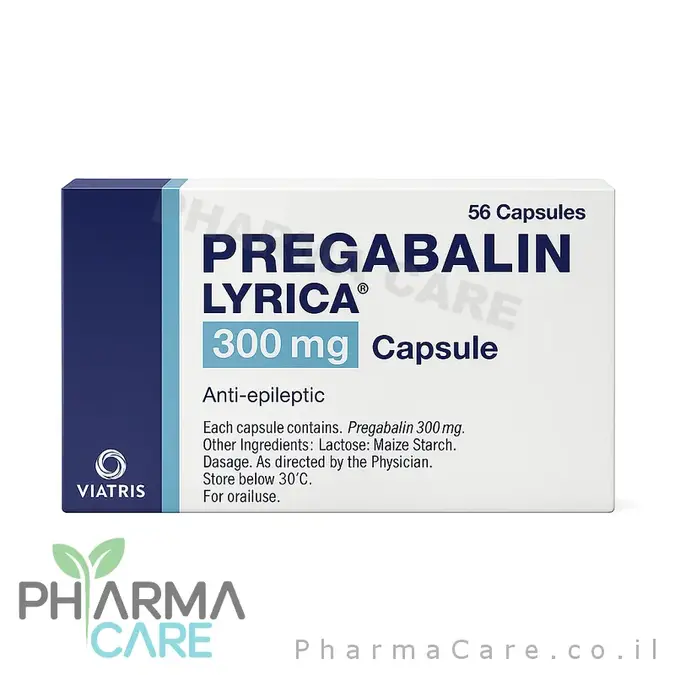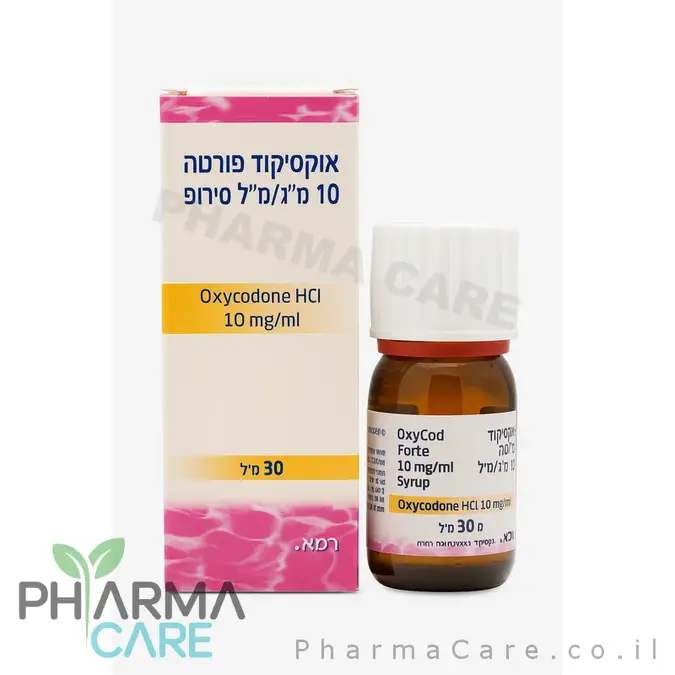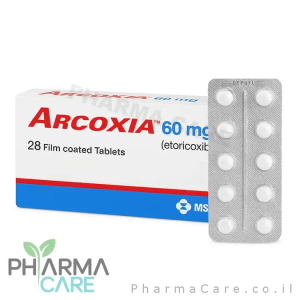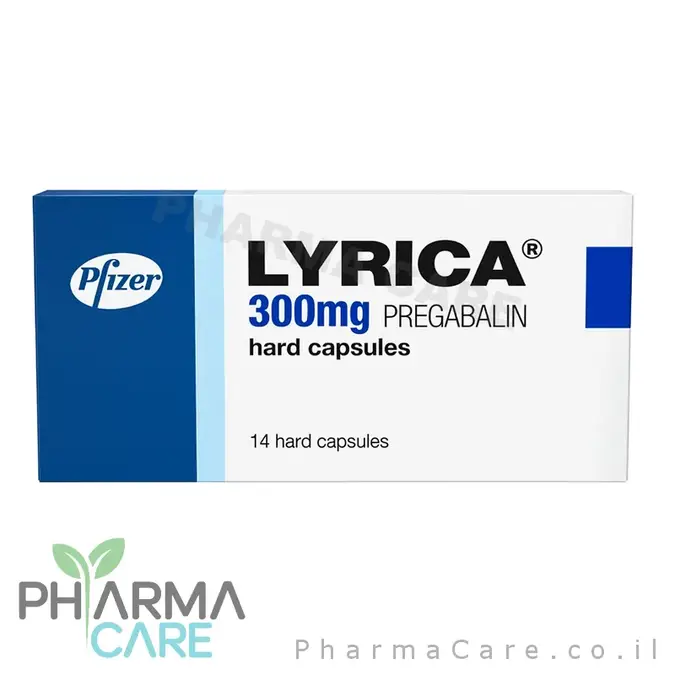Disclosure: The purpose of the text is to provide general information and does not constitute medical advice. Before beginning any treatment, professional advice and medical supervision should be sought.
יתרונות הגישה ל"משככי כאבים"
-
Quick accessibility
אתם יכולים לרכוש תרופות לשיכוך כאב בכל שעה ובכל מקום כמעט. אין צורך בקביעת תור או ביקור ארוך אצל הרופא, מה שחוסך זמן ומאפשר הקלה על הכאב באופן מיידי.
-
Wide range of products
בשוק קיים מבחר מרשים של משככי כאבים. חלקם מיועדים לכאבים כלליים, בעוד אחרים מותאמים לכאבי שרירים, מיגרנות או כאבי מחזור. כך תוכלו לבחור את המוצר המדויק ביותר עבורכם.
-
Relatively low cost
במרבית המקרים, מחירי תרופות נוחים יחסית. גמישות זו מאפשרת לכם לטפל בכאב הבסיסי מבלי להיכנס להוצאות כבדות.
-
Easy integration with daily care
Many pain relievers fit easily into your daily routine. You can take them with a meal or water, without any special restrictions, as long as you follow the instructions.
Why is it important to be careful with frequent use?
משככי כאבים אולי זמינים, אך שימוש יתר עלול לגרור השלכות. כאשר אתם משתמשים באופן רצוף בכדורי שיכוך כאב, הגוף עלול לפתח סבילות, או שתופעות לוואי עשויות להופיע. כמו כן, אם אתם מתבססים על תרופות אלו דרך קבע, ייתכן שהדבר מסתיר בעיה רפואית גדולה יותר. לכן, היו קשובים לגופכם. אם הכאב חוזר לעיתים קרובות, פנו לבדיקה אצל רופא כדי לאתר את המקור האמיתי לבעיה.
Additionally, excessive use of certain medications may lead to damage to the liver, kidneys, or digestive system. Therefore, be sure not to exceed the recommended daily dosage. If you experience persistent or worsening pain, seek professional medical advice. This way, you can avoid risky situations and move on to more appropriate and accurate treatment for your condition.
סוגי משככי כאבים
1. Paracetamol
Paracetamol is considered one of the most common and safest painkillers. You probably know it by various trade names. It is used to relieve headaches, minor muscle aches, and menstrual cramps, as well as to reduce fever. It is important to be careful not to exceed the recommended dosage. In an overdose, paracetamol can cause serious liver damage.
Advantages
-
Safe to use in the correct dosage.
-
Suitable for a wide range of mild to moderate pain.
-
Also suitable for pregnant women (in most cases, under medical advice).
Disadvantages
2. Nonsteroidal anti-inflammatory drugs (NSAIDs)
This group includes drugs like ibuprofen and naproxen. They help relieve pain, lower fever, and reduce inflammation. These types are often used for muscle aches, back pain, menstrual cramps, and minor joint inflammation. When used properly and for a short period of time, these drugs are relatively safe. However, long-term use can damage the stomach and kidneys.
Advantages
-
Also effective for reducing mild inflammation, along with relieving pain.
-
A wide range of dosage forms: tablets, capsules, gel for application or suppositories.
-
Brings relatively quick relief.
Disadvantages
-
May cause stomach irritation and digestive problems with frequent use.
-
Not suitable for those with ulcers, kidney problems, or patients at high risk of blood clots.
3. Local pain relief ointments
Pain relief creams and gels allow for local treatment, especially for muscle pain, joint pain, or sports injuries. They contain active ingredients from the NSAID family or warming ingredients. They may improve blood flow and help reduce pain in the specific area.
The main advantage is local absorption, which reduces the risk of side effects in the digestive system. However, ointments are not suitable for all types of pain, especially if it is internal or systemic pain.
4. Dietary supplements and "natural" painkillers
Some people prefer natural solutions. There are herbs and supplements that can help reduce minor pain, such as omega-3s or curcumin. However, these supplements have not always been adequately clinically tested. They may also interact with other medications or cause allergic reactions. So be careful and tell your pharmacist or doctor about any supplements you are taking.
How to choose the right painkiller?
1. Identify the source of the pain
Before you take any medication, define the type of pain you have. Is it a minor headache, sore throat, muscle aches after exertion, or period pain? Each type of pain has a preferred treatment. For example, for back pain or joint pain due to inflammation, NSAIDs may be more appropriate. On the other hand, for mild period pain, acetaminophen can provide a quick solution.
2. Check the labels and warnings
Read the package insert carefully. Check what side effects may occur. Make sure the medication does not conflict with other medications you are taking. If you tend to suffer from heartburn or stomach ulcers, you may want to avoid NSAIDs and prefer acetaminophen. If you suffer from liver or kidney problems, be more careful in choosing the active ingredient.
3. Consider usability and comfort
Some pain relievers come in pill form, while others come in ointments or lozenges. If you have trouble swallowing pills, you may prefer a syrup or topical ointment. In many cases, personal comfort will determine your ability to stick with treatment.
4. Be vigilant about dosage and frequency
גם אם התרופה נמכרת, היא עדיין עלולה להיות מסוכנת במינון יתר. קראו את ההמלצות על האריזה ושמרו עליהן בקפידה. אם הכאב לא חולף לאחר כמה ימים או מחמיר, עדכנו רופא. אין טעם להמשיך "להילחם" בכאב מבלי לאתר את הגורם האמיתי.
משככי כאבים: מיתוסים מול עובדות
מיתוס 1: "אם נמכר - זה בטוח לגמרי"
Not true. Although painkillers are available over-the-counter, they are still active substances in the body. Some can harm the liver or kidneys if used excessively. Others can cause stomach bleeding or worsen existing medical conditions. Therefore, always pay attention to the instructions for use and your health.
Myth 2: "Painkillers are addictive"
תרופות לשיכוך כאב אינן ממכרות באותה רמה כמו תרופות אופיאטיות (אשר מחייבות מרשם). עם זאת, קיים סיכון פסיכולוגי של תלות נפשית אם אתם מסתמכים עליהן באופן יתר. חשוב לא ליטול אותן אוטומטית בכל תחושת אי-נוחות, ולנסות להבין מה גורם לכאב מלכתחילה.
Myth 3: "Taking a double dose speeds up relief"
Wrong and dangerous. Taking a higher dose than recommended may not provide quick relief but rather cause serious harm. The body can react with poisoning, excessive stomach irritation, or liver damage. Always follow the recommendations on the packaging and do not risk combining similar medications that contain overlapping active ingredients.
Myth 4: "You can stop as soon as the pain goes away"
In many cases, you can stop taking the medication as soon as the pain disappears. However, if you have an inflammation or infection that is accompanied by pain, your doctor may recommend that you complete the course of treatment. If in doubt, it is best to consult a professional.
What to do in case of acute or chronic pain?
-
Define the intensity of the pain
אם הכאב חד מאוד ואינו חולף, פנו לרופא בהקדם. משככי כאבים עשויים לספק הקלה זמנית, אך הם לא יפתרו בעיה חמורה.
-
Try other ways of coping.
Hot or cold compresses, gentle massage, or stretching exercises can be very helpful. Sometimes, resting the painful area can reduce pain more effectively than any medication.
-
Monitor the development of pain
Record frequency and intensity. If you notice a recurring pattern or increasing pain, consult a doctor. You may need a comprehensive medical evaluation.
-
Get enough sleep and hydration.
Sometimes, pain is caused by fatigue, accumulated fatigue, or thirst. Don't underestimate the quality of your sleep and your drinking habits. Maintain a regular regimen of 6–8 hours of sleep a day and drink enough water.
The connection between pain and stress
כאשר אתם מרגישים לחוצים או נמצאים בתקופה מלאה בעומסים נפשיים, ייתכן שתסבלו יותר מכאב. סטרס מגביר את הרגישות הפיזית של הגוף. זו הסיבה לכך שאנשים רבים חשים כאבי ראש או צוואר תפוס בתקופות מתוחות. משככי כאבים עשויים לספק הקלה רגעית, אך הטיפול בשורש הבעיה (הסטרס) חשוב לא פחות.
To reduce stress, do moderate exercise, practice deep breathing or meditation, and try to organize your schedules in a more balanced way. If you recognize that the source of the pain is mental stress, contact a professional in the field of psychology or coaching. A combination of mental and physical therapy can bring significant and long-term relief.
Correct use of pain relief gels and ointments
-
Cleaning the area
Before applying, wash the painful area thoroughly with soap and water. Pat it dry with a clean towel to improve absorption.
-
Gently apply
Apply a thin layer of the gel or ointment to the area and massage in slowly. The pressure should be gentle and not cause additional pain.
-
Wait for absorption.
Let the product soak in for a few minutes before covering the area with clothing or a bandage. If you need to secure the area, make sure the ointment is well absorbed.
-
Wash your hands.
After use, wash your hands with soap and water. Some of the active ingredients in the gel may cause a burning sensation if they come into contact with the eyes or mouth.
Safety considerations during pregnancy and breastfeeding
Pregnant or breastfeeding women should be extra careful when using painkillers. Paracetamol is often the preferred choice, but even here it is important to stick to your doctor's instructions. Medications such as ibuprofen or aspirin are not recommended at certain stages of pregnancy and may cause complications. If you are unsure, consult your doctor or a specialist pharmacist, who will provide safe recommendations.
Tips for incorporating painkillers into your daily routine
-
Always read the consumer leaflet
Even if you are familiar with the drug, important innovations and details may appear in the latest updates.
-
Use a reminder
If you need to take a pill at a certain time, use an alarm clock on your mobile phone or a reminder app.
-
Keep in a safe place.
Store medications in a cool, dry place, out of reach of children. Make sure other adults in the area know where the medications are and how to use them.
-
Be careful not to mix similar medications.
If one medicine contains acetaminophen and the other also contains acetaminophen combined with another active ingredient, you may overdose. Check the ingredients and do not take similar medicines without consulting your doctor.
-
Incorporate healthy lifestyle habits
Physical activity, a varied diet, and adequate sleep reduce the frequency of pain. The better the body is maintained, the less need for painkillers.
Chronic pain relief and risk of overuse
במקרים של כאב כרוני, אנשים רבים נוטים להשתמש תדיר במשככי כאבים. אם אתם מתמודדים עם כאב מתמשך לאורך שבועות או חודשים, מומלץ לפנות לטיפול רפואי מעמיק ולא להסתמך אך ורק על משככים זמינים. שימוש יתר עלול לגרום לנזקים ארוכי טווח לאיברים חיוניים, ולהחמיר את מצבכם בסופו של דבר.
Combination with other drugs
It is important to check for interactions between painkillers and other medications. For example, if you are taking blood pressure medication or anticoagulants, some of the active ingredients in NSAIDs or other painkillers may interfere with their proper functioning. Always tell your pharmacist or doctor about all the medications and supplements you are taking on a regular basis. This way you can get accurate guidance and avoid dangerous side effects.
Recommended external links
-
Israeli Ministry of Health website:
מכיל מידע רשמי ומקיף על תרופות, הנחיות שימוש ואזהרות עדכניות.
On the site you will find professional recommendations and current medical research.
-
Mayo Clinic website (English):
A world-renowned source on medicine and general health.
Also contains comprehensive information on painkillers, interactions, and side effects.
Why is it important to see a doctor if necessary?
משככי כאבים אינם תחליף לאבחון רפואי מדויק. אם אתם חווים תסמינים חריגים או כאב חריף שלא חולף, עליכם לגשת לרופא. ייתכן שמדובר בבעיה הדורשת טיפול ספציפי יותר, כמו אנטיביוטיקה, פיזיותרפיה או ניתוח. אבחון מוקדם חוסך סבל ועשוי למנוע סיבוכים בהמשך הדרך.
Combining physical activity and prevention
It is important to understand that not all pain requires medication. Sometimes, muscle pain results from strenuous physical activity. In such a case, brief rest, moderate stretching, and local treatment (such as an ice pack) can solve the problem. Strengthening muscles and improving posture prevent pain from recurring. Try to incorporate at least three sports workouts a week, even light walks, to contribute to normal blood flow and reduce the level of daily pain.
Frequently Asked Questions (FAQ)
האם אפשר לקחת משככי כאבים ביחד עם אלכוהול?
It is recommended to avoid this combination. Consuming alcohol with painkillers may increase the side effects and damage the liver. Always check the instructions in the leaflet, and if in doubt, consult a doctor or pharmacist.
When is a topical ointment better than a pill?
A topical ointment is suitable if the pain is localized to a specific area (e.g., knee, shoulder, or lower back). It provides immediate relief without burdening the stomach or liver. However, if the pain is widespread or stems from an internal problem, you may need a pill to swallow.
האם מותר לקחת משככי כאבים בהריון?
In general, acetaminophen is considered relatively safe when used properly during pregnancy. However, it is always best to consult your doctor. Some medications may harm the fetus, especially during the third trimester.
האם משככי כאבים יכולים לפגוע בכליות?
Yes, some painkillers belonging to the NSAID group may put a strain on the kidneys, especially with prolonged use or in high doses. If you have a kidney problem or are taking other medications, be sure to consult a doctor before use.
What should you do if the pain doesn't go away after two or three days?
If the pain does not improve or worsens, seek medical advice. The source of the pain may be more serious or require specialized treatment. Do not insist on continuing home treatment without a thorough examination.
The importance of awareness of side effects and follow-up management
Monitoring side effects is an important step. If you notice symptoms such as nausea, skin rash, severe stomach pain, or unusual weakness, you may be having a bad reaction to the medication. If this happens, stop using it and see your doctor. Sometimes you will need blood tests or other medical tests. Proper treatment starts with listening to your body and sharing information with a professional.
When should you incorporate complementary or alternative therapy?
In some cases, complementary therapies can help relieve pain. Physical therapy, massage therapy, acupuncture, or yoga may help relieve chronic pain and reduce the need for medication. If you identify that your pain is due to poor physical behavior or accumulated emotional stress, treatment that addresses the root cause may be as effective as, or even more effective than, medication. Be open to different solutions and consider a combination of medication and complementary therapies.
First aid: How to act in an emergency?
-
Assess your situation.
If the pain is severe, you notice unusual swelling, or you have difficulty moving, you may need urgent medical attention. Don't ignore it or rely solely on painkillers.
-
Use cooling or heating means
Sometimes a cold or hot compress can provide immediate relief and reduce the need for medication.
-
Monitor symptoms
Record the time, the intensity of the pain, and any other symptoms (such as fever, nausea). If the condition worsens, call a medical center for further instructions.
-
Seek urgent medical advice if necessary.
Don't delay in emergencies. There are situations where calling an ambulance or going to the emergency room is the safest solution.
Tips for safely storing painkillers
-
Keep in a closed cabinet.: Make sure medications are kept out of reach of children and pets.
-
Avoid moisture and sun exposure.: Heat and humidity can impair the effectiveness of the active ingredient.
-
Check expiration date: Do not use expired medicine, even if it looks fine. The active ingredient may lose its effectiveness or even be dangerous.
-
Save the packaging and leaflet.This way you can refer back to the instructions at any time and be sure you are taking the correct dosage.
האם משככי כאבים מתאימים לספורטאים?
ספורטאים רבים נתקלים בכאבי שרירים או פציעות קלות. משככי כאבים מספקים הקלה זמנית, אך אין לטפל באופן רציף בכאבים מבלי לאבחן את המקור. שימוש מוגזם באיבופרופן או תרופות מקבוצת NSAIDs לפני אימונים עלול למסך כאב אזהרה ולגרום נזק חמור יותר לטווח הארוך. אם אתם ספורטאים תחרותיים, היוועצו עם רופא ספורט לגבי הטיפול המתאים והדרכים למנוע פציעות חוזרות.
Changing dietary habits and food supplements
Sometimes, chronic or persistent pain can be related to nutritional deficiencies. Being overweight can put pressure on joints, leading to back and knee pain. Changing your diet, reducing sugar, and consuming natural anti-inflammatories, such as turmeric or omega-3s, may reduce the intensity of inflammation and pain. However, supplements are not a substitute for medication in severe cases, and a nutritionist should be consulted before starting to use various supplements.
Dealing with headaches and migraines
כאבי ראש הם אחד מסוגי הכאבים הנפוצים ביותר. לעיתים ניתן להסתפק בפרצטמול או באיבופרופן, אך כשמדובר במיגרנות, המצב מורכב יותר. משככי כאבים עשויים לסייע בשלב ההתחלתי של המיגרנה, אך אם ההתקפים חוזרים לעיתים תכופות, מומלץ לפנות לרופא לקבלת טיפול מותאם. במקרים מסוימים, ישנן תרופות מרשם ייעודיות למיגרנה הפועלות על כלי הדם במוח.
What to do if the pain worsens at night?
Nighttime pain can disrupt your sleep and affect your ability to function the next day. If you experience pain at night, try a mild pain reliever before bed, as directed. Be sure to create a comfortable sleeping environment: avoid using electronic devices, darken the room, and make sure the room temperature is comfortable. If the pain is accompanied by other symptoms or persists for a long time, see a doctor to check for sleep disorders or other physiological causes.
Integrating relaxation methods
תרגולי מדיטציה, יוגה, טאי צ'י וטכניקות נשימה עמוקה יכולים להוריד את רמת הלחץ בגוף ולהשפיע לטובה על הכאב. אתם יכולים להקצות לעצמכם כמה דקות ביום לתרגול נשימות בטן או להרפיה מודעת. בנוסף, כדאי לנסות לחקור טכניקות כמו ביופידבק, שמסייעות בזיהוי מתח בשרירים. השילוב בין משכך כאבים לבין גישה נפשית-גופנית מביא לעיתים לתוצאות טובות יותר מאשר משככי כאבים לבדם.
Personal responsibility for pain relief
הבריאות שלכם נמצאת קודם כל בידיים שלכם. כשאתם בוחרים משככי כאבים, אתם נוטלים אחריות על הגורם הפעיל שנכנס לגוף. עליכם לקרוא את התווית, לבדוק תופעות לוואי אפשריות ולהתייחס למינון. אל תהססו לשאול שאלות ולדרוש הסבר מהרוקח. שמרו על תיעוד של כל תרופה או תוסף שאתם נוטלים. רפואה מונעת מורכבת גם מהקפדה על אורח חיים בריא, וזו האחריות שלכם לתחזק את הגוף באופן אופטימלי.
Bonus points: How to prevent pain in advance?
-
Do some stretching before a workout.: Proper warming up and stretching prevent injuries and delayed muscle soreness.
-
Sit properly in front of the computer: Adjust the height of your chair and screen, and maintain an ergonomic posture that will reduce strain on your neck and back.
-
Replace worn-out shoes: Poor foot support affects many joints. Replace old shoes to avoid unnecessary pain.
-
Take frequent breaks.: If you work sitting down, get up for a short walk every hour. This simple action prevents the build-up of tension in your muscles.
How to evaluate the effectiveness of painkillers?
It is a good idea to track the effect of the medication using time and quality metrics. Try to understand how long it takes for the pain to subside and how intense it is. If you need to increase the dosage or frequency to achieve the same relief, it may be time to explore alternatives or see a doctor. Be sure to record dates, types of pain, and the medication taken. This way, you can present a clear picture to your doctor, should you need professional advice.
באילו מצבים משככי כאבים לא מספיקים?
-
Acute inflammation: Like pneumonia or a bacterial infection, which requires antibiotics.
-
Serious injuries: A fracture, muscle tear, or deep injury sometimes requires surgical treatment or stronger prescription medications.
-
Neuropathic pain: Pain originating in the nervous system, such as sciatica or diabetes. Sometimes specific neurological medications are needed.
-
Pain with high fever: Conditions that may indicate a serious infection.
Intelligent use of OTC (Over The Counter) medications
OTC, כלומר תרופות הנמכרות על מדף, כוללות בין השאר משככי כאבים, תרופות להורדת חום ותכשירים להקלה על צינון. חשוב לזכור שגם מוצרים אלו מנוהלים על ידי רשויות הבריאות ועוברים בדיקות מחמירות. עם זאת, האחריות לשימוש נכון מוטלת עליכם. אל תחשבו שתרופה "פשוטה" לא יכולה להזיק.
Complementary ways to relieve pain
-
Hot or cold compresses: Helps reduce swelling and improve blood circulation.
-
Local massage: Releases tense muscles and aids in general relaxation.
-
Breathing exercises: Reduces mental stress that affects the intensity of pain.
-
Essential oils: Lavender, peppermint, or rosemary may relieve minor pain, if used in a massage or warm bath.
When is it important to consult an orthopedist or pain specialist?
אם אתם חווים כאבים חוזרים באותו אזור, כמו ברך או גב, ויש הגבלה בתנועה, אל תסתפקו בתרופות. ייתכן שמדובר בבעיה מבנית או דלקת ממושכת. אורתופד או מומחה לכאב יכולים להציע טיפולים ייעודיים, כולל פיזיותרפיה, זריקות מקומיות או פתרונות ארוכי טווח. ותרו על דחייה ממושכת של בירור רפואי, כדי למנוע נזק קשה יותר בהמשך.
Maintaining a healthy weight
עודף משקל מהווה גורם סיכון להופעת כאבים במפרקים, בעיקר בברכיים, בירכיים ובעמוד השדרה התחתון. אם אתם מתמודדים עם משקל עודף, שקלו לפנות לדיאטן מוסמך כדי לבנות תכנית תזונה מאוזנת. הפחתה במשקל יכולה להקטין בצורה משמעותית את תדירות הכאבים ואת הצורך במשככי כאבים
האם תרופות סבתא יכולות להחליף משככי כאבים?
In some cases, home remedies like ginger tea, chamomile tea, or applying warm olive oil may help relieve minor pain. But for severe cases or persistent pain, they are not a substitute for proper medical care. You can try natural methods as a first line, but be alert to changes in your condition. If the pain worsens, seek out proven products or a doctor for advice.
Precautions for the elderly
Elderly people tend to be more sensitive to the side effects of various medications, due to decreased kidney and liver function. If you or your relatives are elderly, it is recommended to check the suitability of the painkiller with your family doctor. Special emphasis will be given to the effect on blood pressure, kidneys and digestive system activity. It is also worth monitoring for unusual reactions and conducting periodic blood tests if necessary.
Summary
משככי כאבים מהווים כלי נגיש לשיכוך כאב קל עד בינוני. יחד עם זאת, הם אינם פתרון קסם לכל מצב. חשוב להכיר את האפשרויות השונות, להבין את המגבלות ולפעול באופן מושכל.
If you need customization or a quick order of medical products, contact us now via WhatsApp or Telegram.
We will be happy to assist with any questions and guide you in choosing the product that best suits your needs.

